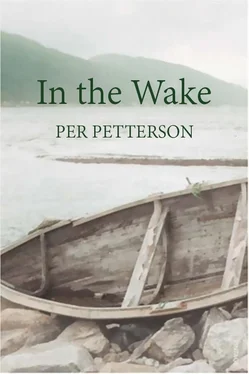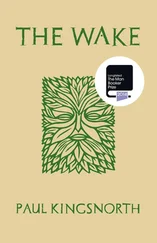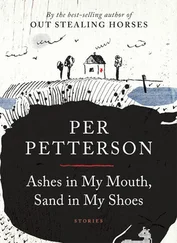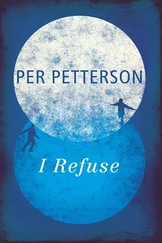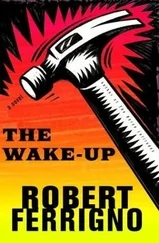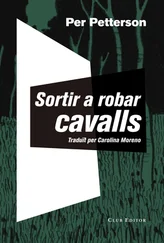Per Petterson
In The Wake
Arvid has lost his parents and his two younger brothers in a ferry accident. Only he and his brother are left alive. The novel he is writing about his father is stalled, the grief and guilt he feels at having survived are too overwhelming. It is as though Arvid has become dislocated from the flow of life. His only human contact is with his Kurdish neighbour, and a woman whom he glimpses in the flat across the street, whose face seems to mirror his own loneliness and loss. Then slowly, the memories begin to return: of his childhood, of his father, of his two younger brothers. He begins to write again.
Poignant, restrained, and at times unbearably moving, In the Wake is informed by terrible tragedy, and by man’s sense of the beauty of the natural world, at times our only source of solace.
Per Petterson, born in 1952, was a bookseller before publishing his first work, a volume of short stories, in 1987. Since then he has written five novels, which have established his reputation as one of Norway’s best fiction writers. Out Stealing Horses was awarded the Norwegian Booksellers’ Prize, the Critics’ Award for Best Novel and won the 12th International IMPAC Dublin Literary Prize in 2007. In the Wake (in Anne Born’s translation) was longlisted for the Independent Foreign Fiction Prize.
Anne Born, poet, critic and historian, has translated many works from the principal Scandinavian languages into English, including two other novels by Per Petterson.
IT WAS SOMETHING to do with a face. I had never seen it before, yet I did recognise it, but as it comes to me now, the thought of it is unpleasant. Someone gave me a gin. I had had enough already. I see my hand around the glass, the glass is full to the brim, and then I do not remember anything more except that face, and now I stand with my forehead against the glass of this bookshop door, and I kick at the door. They have to let me in. I do not know how long I have been standing here. I have been out of this world and now I am back, and I don’t feel well. Why doesn’t someone come and let me in? I kick the door. People are passing on the pavement behind me, but I don’t turn round, just squeeze my face to the glass and my nose is flattened and I stare at the rows of books. It is dark in there, but light outside. It is morning, the sun feels hot on my neck, but I dare not turn round. That glass of gin was yesterday and miles and miles from this street in central Oslo.
Someone gives a little cough and says: “I don’t think there’s anyone there yet. It’s probably too early.”
I know that voice, it’s the lady from the kiosk next door. I have known it for years. She is right behind me. I could pick her out with my eyes shut in the middle of Aker Brugge on a crowded Saturday afternoon in June. I’ve been buying Petterøe 3 tobacco and Dagbladet and a Kvikk Lunsj chocolate bar from her since 1981. And then I remember. I do not work here any more. I haven’t worked here for three years. I stand perfectly still holding my breath and wait for her to go away. It is a good idea not to breathe, my side hurts every time I suck the air in. But then I have to breathe, and there is a squeak from my throat or further down, and the pain in my side is there at once. It is lung cancer, I’m convinced it is, and I feel so sad because I have lung cancer and will certainly not be here for long.
It is quiet behind me now so she must have gone, and then I start to cry, with my nose pressed to the glass door, and I look in at the rows of books, see that the shop has grown since I stopped working there, more floor space with more shelves for many more books I shall never read because I am going to die of lung cancer.
I am forty-three. When my father was this age I had just been born, and he never touched a cigarette in his whole life. He only had a drink with Sunday dinner; one pint because he deserved it. The body should be a temple of life, he said, not a whited sepulchre. He was a skier and a boxer, and when he breathed, the air went straight into his lungs, and did no harm at all for the air was much cleaner then. If he ever coughed, it was because he had a cold, and he rarely did. Now he is dead, but through no fault of his own. If I die now it will definitely be my fault. That is the difference between us, and it is a big difference.
I cough and look down; I see my hands. They have an emptiness I cannot account for and they are dirty, there are grazes on both palms, but I feel no pain. They just hang there. Then I remember a high grey wall and its rough surface, I am falling and holding on at the same time, and I remember utterly still water in a pool, chlorine blue water with black lines on the bottom. It is a public swimming pool, and it is not yet open, it is quite silent, only a man all in white walking by the side of the pool, and I try to work out just where it is that I am standing watching this from, but I can’t. I am all over the place, I am like God, I am omnipresent. I can see the clock on the wall quite clearly, but I cannot make out what the time is. There is a palm tree in one corner. It is Bislett baths, I think. Then the grey wall is Bislett stadium. But I have not been to Bislett stadium since I was ten and with my father and saw Raufoss beat Vålerenga FC two-nil. He was shattered. Didn’t say a word all the way home.
I feel the sun on my neck, it is burning or something is burning, and maybe it is Sunday. I don’t remember. I see only my eyes in the glass and the books beyond, and I don’t know what day it is.
“Go and see what the weather is like,” my brother would say every time it was Sunday morning and winter, and I would have to get out of the bottom bunk and go to the window and pull the heavy curtain aside and look out through the frost flowers.
“It’s sunny,” I say, “sunshine and fine weather.”
“Sunshine,” he says, “fucking shit.”
“Fucking shit,” I say, and the snow was so white it hurt your eyes, and the smell of frying bacon floated up from downstairs, and we knew that he had been awake for several hours, preparing the skis and loading the rucksacks. Now they were ready in the hall with the thermos and sandwiches in the side pockets and extra sweaters and socks and ski scrapers and three lots of Swix varnish in case of a sudden thaw or if the mercury dropped, and two oranges apiece and perhaps a Kvikk Lunsj chocolate bar if we were lucky, and the rucksack would be sure to weigh twenty kilos each.
But that is a lifetime ago, and he has been dead for nearly six years. I remember an office on Drammensvei with a red cross on the door, a fireman is showing a video from the inside of the boat with a landscape of half-naked, prone bodies: THE CORRIDOR OF DEATH, the front page of Verdens Gang said, that video was on the inside of my eyes; skin, I see skin, velvety dull in the flickering light of a lamp moving onwards, restless shadows between elbows and hips, shoulder blades and necks, a sea of hushed softness where nothing moves but the light which brings life to what is not living. The camera runs and pauses for a moment before what has turned black, where the flames have devoured it all, finished the job, and then it swings into a cabin where a woolly penguin lies alone on a bunk, the door to the bathroom ajar, the dark crack hiding the bath’s obvious secret. My feet are freezing as I stand here with my nose to the door remembering the cold creeping into my feet that time in that office, and my stomach wildly burning. But my face was calm, and the woman sitting next to me said:
Читать дальше
